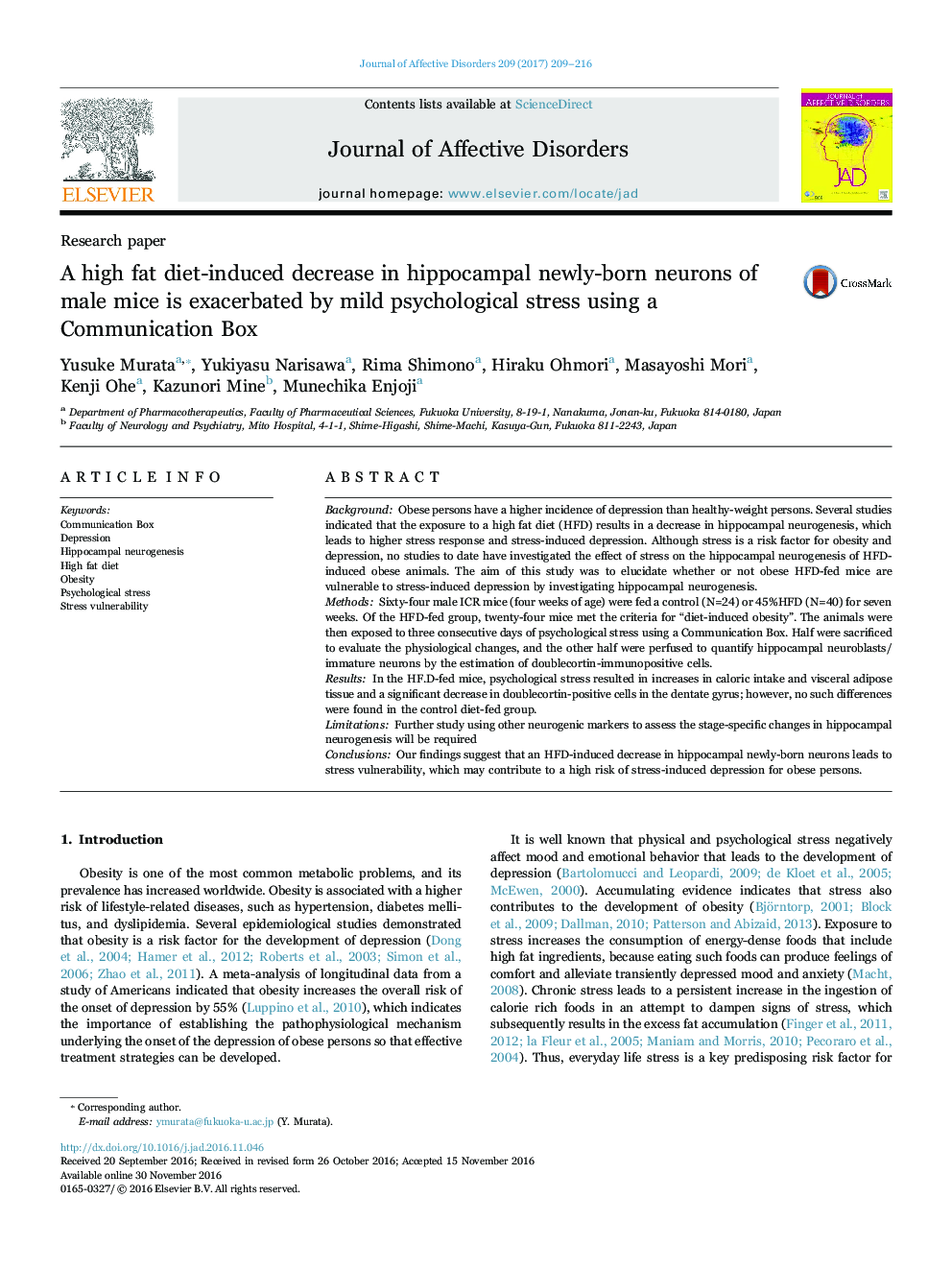| Article ID | Journal | Published Year | Pages | File Type |
|---|---|---|---|---|
| 5722288 | Journal of Affective Disorders | 2017 | 8 Pages |
â¢Obese persons are shown to have a high incidence of depression.â¢We investigated the effect of Communication Box on hippocampal neurogenesis.â¢Hippocampal neurogenesis was decreased in high fat diet-induced obese (HFDIO) miceâ¢Mild psychological stress induced a further decrease in neurogenesis of HFDIO mice.â¢The decreased neurogenesis contributes to stress vulnerability for obese persons.
BackgroundObese persons have a higher incidence of depression than healthy-weight persons. Several studies indicated that the exposure to a high fat diet (HFD) results in a decrease in hippocampal neurogenesis, which leads to higher stress response and stress-induced depression. Although stress is a risk factor for obesity and depression, no studies to date have investigated the effect of stress on the hippocampal neurogenesis of HFD-induced obese animals. The aim of this study was to elucidate whether or not obese HFD-fed mice are vulnerable to stress-induced depression by investigating hippocampal neurogenesis.MethodsSixty-four male ICR mice (four weeks of age) were fed a control (N=24) or 45%HFD (N=40) for seven weeks. Of the HFD-fed group, twenty-four mice met the criteria for “diet-induced obesity”. The animals were then exposed to three consecutive days of psychological stress using a Communication Box. Half were sacrificed to evaluate the physiological changes, and the other half were perfused to quantify hippocampal neuroblasts/immature neurons by the estimation of doublecortin-immunopositive cells.ResultsIn the HFD-fed mice, psychological stress resulted in increases in caloric intake and visceral adipose tissue and a significant decrease in doublecortin-positive cells in the dentate gyrus; however, no such differences were found in the control diet-fed group. LimitationsFurther study using other neurogenic markers to assess the stage-specific changes in hippocampal neurogenesis will be requiredConclusionsOur findings suggest that an HFD-induced decrease in hippocampal newly-born neurons leads to stress vulnerability, which may contribute to a high risk of stress-induced depression for obese persons.
